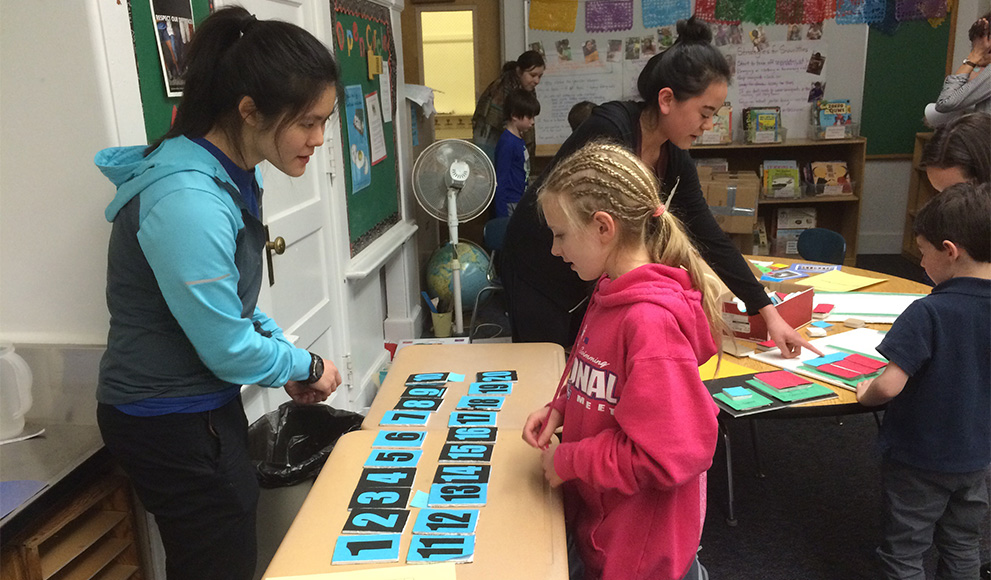Wellesley Students Teach Math with Hands-On, Interactive Activities at Elementary School Science Night

Earlier this month, students at the Town of Wellesley's John D. Hardy Elementary School gathered for an evening of hands-on science exploration. This event eschewed the format of a traditional science fair, where students might study or present on a single topic, and instead encouraged students to explore concepts through one "discovery room" at a time.
For the past several years, Ann Trenk, professor of mathematics, and her students have hosted a math discovery room at the event. "The hands-on activities we use were designed and built by me and my students based on material from my classes," Trenk said. "It is a great way for my students to reflect on what they have learned and try to simplify it so that it is accessible to elementary school kids. It is also a great way to show that math is more than arithmetic and calculations."
Elizabeth Hau '16 said she hoped the activities would show young students how much fun math is and lead them to develop an interest. She led several activities during the event including a card flipping activity for perfect squares, another for finding out what day of the week you were born, and an activity that had students make stamps of a particular value using stamps of other values. "For example, making a stamp that is worth 13 cents given an unlimited amount of 3 cent stamps and 7 cent stamps," she said.
Megan Chen '17 set aside a big problem set with a looming deadline to go. "We need to inspire the next generation," she said.
For Meredith McCormack-Mager '16, the Hardy night is something she looks forward to every year. "It's a lot of fun to realize that the math I'm learning in college is actually accessible to elementary school students, and to feel like I’m setting them up early to find passions and success in the areas of study I love," she said. This was her third year participating.
McCormack-Mager, who started tutoring math in high school, said she enjoys teaching and instilling a love for math into younger children and girls in particular. "I've noticed that kids often make up their minds about hating math by the time they get to middle school, and it's difficult to change their opinions after that," she said.
A senior mathematics major, McCormack-Mager said she is interested in studying ways to make healthcare more efficient using math modeling. She said she hopes to pursue a PhD in that area in a couple years and, in the future, conduct math research or teach math.
"I remember often hearing the boys voices more than the girls voices in my math classes when I was in elementary and middle school, and being told by some of the boys in my class that they were better at math than me because of their gender," McCormack-Mager said. "Because of this, it's especially important to me to build mathematical confidence and enthusiasm in young girls, so they can persevere even if some annoying boys come along and tell them they can't."
At Hardy, she said there was one girl who finished all the puzzles at her station and kept asking for more, "I had to make some up on the spot! That was a great feeling—having a kid that excited about learning."
